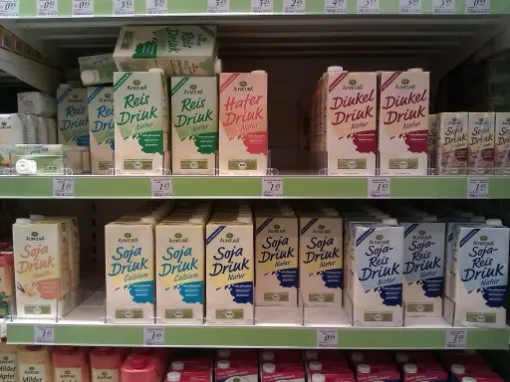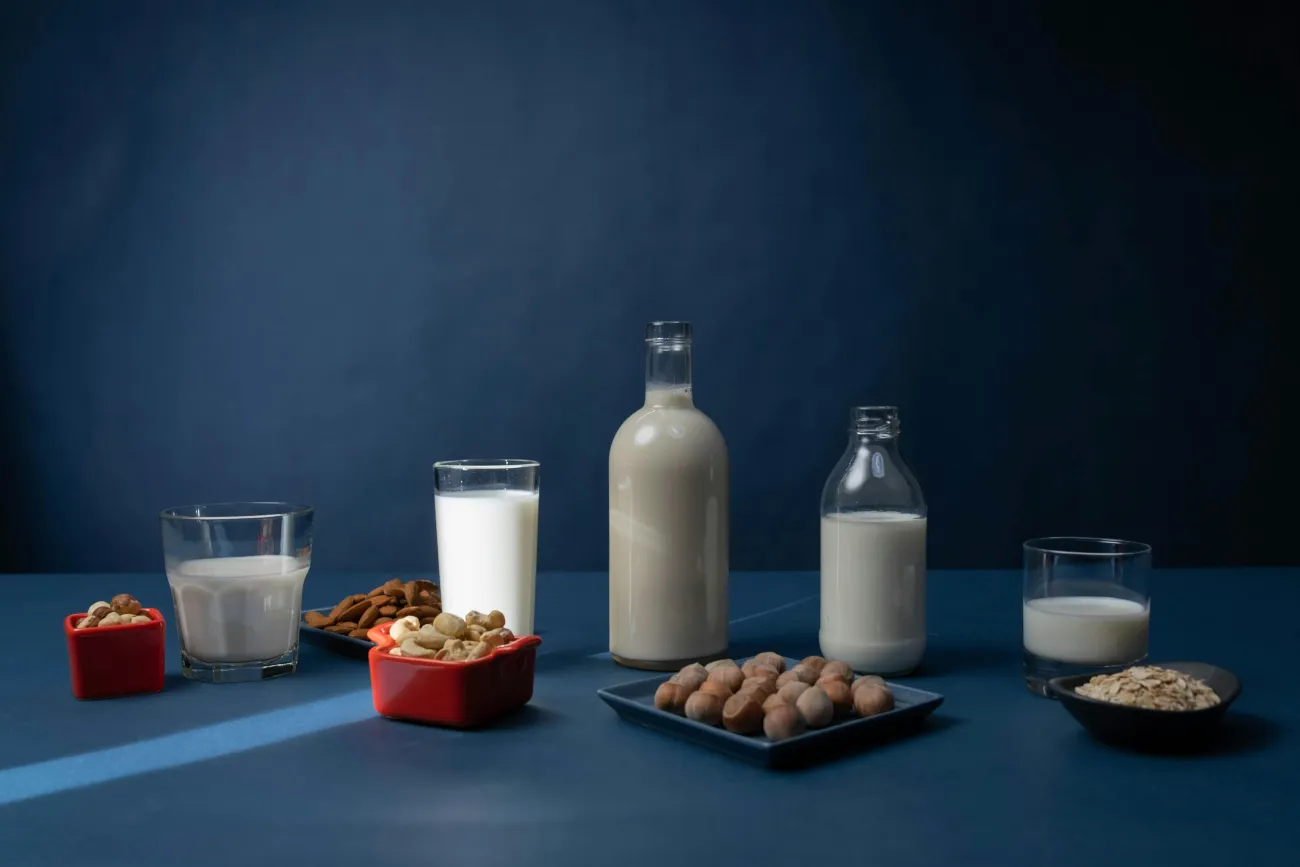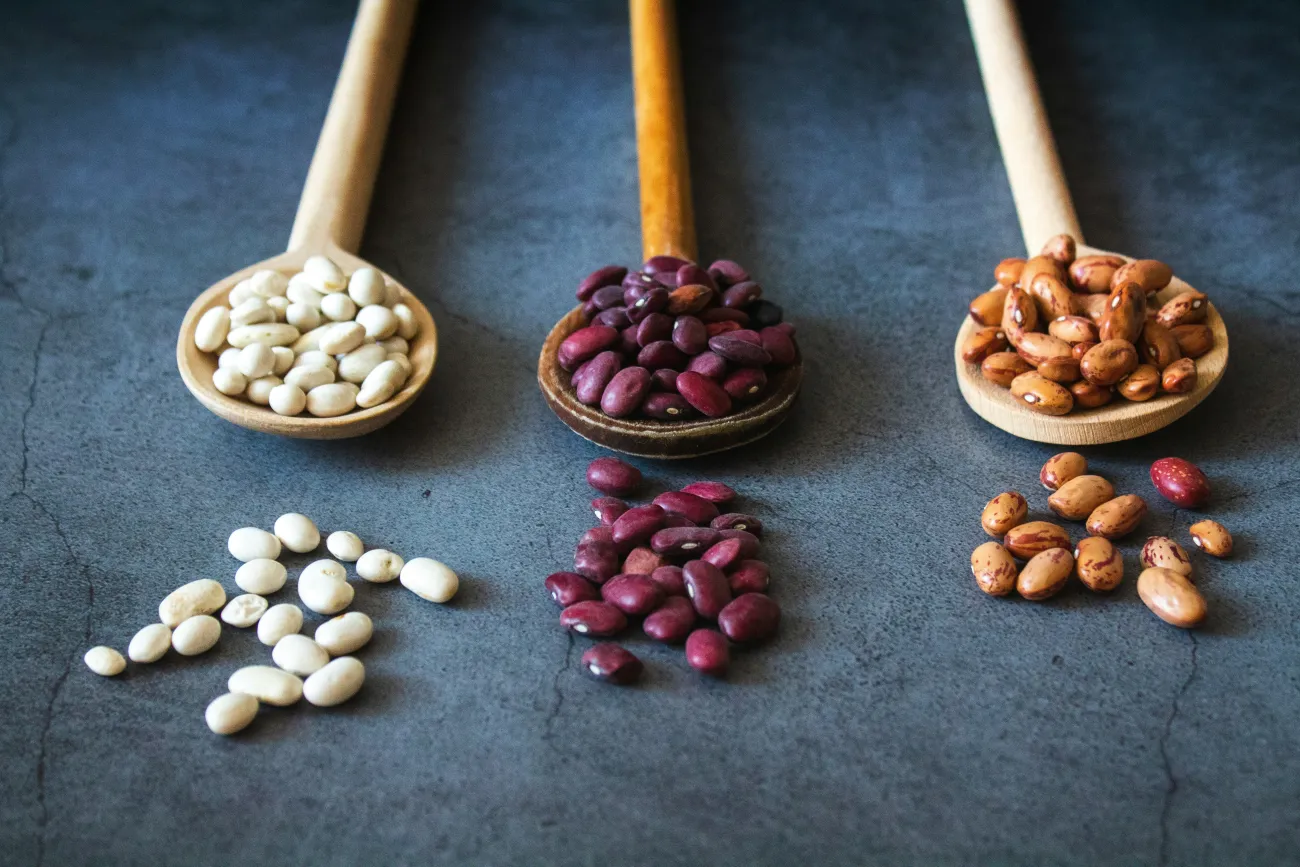This paper provides a useful overview of the nutritional, and (very briefly) some of the environmental differences between cow’s milk and substitute milks made from plants such as soy, rice, quinoa and oats. Having described the process of transforming plants into milks it then goes on to conclude that there are important nutritional differences, with cow’s milk generally richer in protein and essential micronutrients. It notes, however, that the GHG footprint non-dairy substitutes tends to be lower. It concludes:

“Plant based milk substitutes have a reputation of “health foods” but the products on the market vary remarkably in their nutritional profiles, some having very low protein and mineral contents. If these products are to be portrayed as substitutes for cow’s milk, protein content and quality as well as fortification has to be considered by manufacturers. Attention should be brought to the possible ways of improving the nutritional properties by processing means e.g. the use of enzymes and the selection of raw materials based on their protein quality. Also a reconstitution approach may allow a more efficient extraction of protein from the material and the formulation of higher protein products. This would however increase the costs and also the environmental impact of the products. More knowledge is required to overcome the mineral fortification related stability issues.”
Abstract
A growing number of consumers opt for plant based milk substitutes for medical reasons or as a lifestyle choice. Medical reasons include lactose intolerance with a worldwide prevalence of 75% and cow’s milk allergy. Also in countries where mammal milk is scarce and expensive, plant milk substitutes serve as a more affordable option. However many of these products have sensory characteristics objectionable to the mainstream Western palate. Technologically, plant milk substitutes are suspensions of dissolved and disintegrated plant material in water, resembling cow’s milk in appearance. They are manufactured by extracting the plant material in water, separating the liquid and formulating the final product. Homogenisation and thermal treatments are necessary to improve the suspension and microbial stabilities of commercial products that can be consumed as such or be further processed into fermented dairy type products. The nutritional properties depend on the plant source, processing and fortification. As some products have extremely low protein and calcium contents, consumer awareness is important when plant milk substitutes are used to replace cow’s milk in the diet e.g. in the case of dairy intolerances. If formulated into palatable and nutritionally adequate products, plant based substitutes can offer a sustainable alternative to dairy products.
Citation
Mäkinena, O. E., Wanhalinnab, Viivi, Zannini, E., Arendt, E. K. (2015) Foods for Special Dietary Needs: Non-Dairy Plant Based Milk Substitutes and Fermented Dairy Type Products, Critical Reviews in Food Science and Nutrition, DOI:10.1080/10408398.2012.761950
Read the full paper here.
You can read more about the sustainability of milk products and their alternatives in our research library here.




Comments (0)